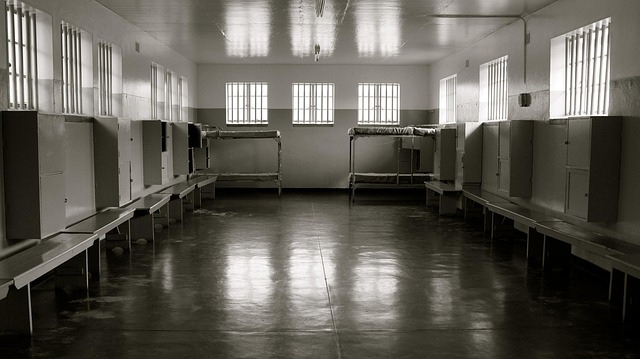Companies are actively combating drunk driving through Corporate DUI Awareness Workshops and safety measures. These initiatives aim to raise awareness, change behavior, and promote responsibility, especially crucial for first-time offenders seeking a fresh start. Workshops educate about legal consequences, personal accountability, and the impact of DUIs on careers, empowering individuals to make better choices. Supportive corporate programs, including counseling and diversion, help first-time offenders avoid formal conviction and long-term consequences, fostering rehabilitation and community safety.
In today’s digital era, corporate DUI (driving under the influence) policies are evolving to reflect a more nuanced understanding of human error and the potential for rehabilitation. This article explores the concept of second chances for first-time offenders, delving into key aspects such as corporate policy, legal implications, employee support, and fostering a culture of responsible drinking through workshops and awareness programs. By examining success stories, we highlight the transformative power of redemption and its impact on both individuals and organizations.
- Understanding Corporate DUI Policies
- The Impact of First-Time Offenses
- Legal Implications and Consequences
- Employee Support and Rehabilitation
- Creating a Culture of Responsible Drinking
- Second Chances: Success Stories
Understanding Corporate DUI Policies

Many companies today are taking a proactive approach to addressing drunk driving by implementing strict corporate DUI policies. These policies often include mandatory Corporate DUI Awareness Workshops for all employees, focusing on the dangers and consequences of operating a vehicle under the influence. By raising awareness, these workshops aim to change behavior and reduce instances of impaired driving.
In addition to training, companies may mandate random breath tests or require employees to undergo regular safety checks. Such measures not only protect the well-being of company assets and public safety but also demonstrate a commitment to responsible corporate culture. Understanding and adhering to these policies is crucial for first-time offenders seeking a second chance, as it shows a willingness to learn from mistakes and prioritize safety.
The Impact of First-Time Offenses

First-time offenses, especially those that involve alcohol like DUIs (Driving Under the Influence), can have a profound and lasting impact on individuals and their communities. These incidents often serve as wake-up calls, highlighting the potential consequences of poor decisions. In the context of Corporate DUI Awareness Workshops, understanding this impact is crucial for fostering a culture of responsibility among employees. Such workshops not only educate about the legal and safety aspects but also emphasize personal accountability and the long-term effects on careers and reputations.
For first-time offenders, the aftermath can include legal penalties, community service, fines, and a permanent criminal record. In a corporate setting, these consequences can extend to job security, promotions, and professional opportunities. Therefore, Corporate DUI Awareness Workshops play a vital role in helping individuals recognize the severity of their actions and make informed decisions to avoid similar situations in the future.
Legal Implications and Consequences

For first-time offenders, the legal implications and consequences of a DUI (Driving Under the Influence) conviction can be significant, but there is often room for leniency and a second chance. In many jurisdictions, first-time DUI offenses are treated as misdemeanors, which typically result in fines, license suspension, and mandatory alcohol education or treatment programs. These programs often include Corporate DUI Awareness Workshops designed to educate individuals about the dangers of impaired driving and promote responsible behavior.
However, the specific penalties can vary based on factors such as blood alcohol content (BAC), the presence of passengers, and prior criminal history. In some cases, first-time offenders may be eligible for alternative sentences, deferred adjudication, or diversion programs that allow them to avoid a formal conviction. These options provide an opportunity for individuals to demonstrate good behavior and rehabilitation, potentially leading to the dismissal of charges after a specified period.
Employee Support and Rehabilitation

Many first-time offenders, especially those facing charges like DUI, often need guidance and support to turn their lives around. Employee support plays a crucial role in this process. Companies that offer comprehensive rehabilitation programs can significantly impact an employee’s journey towards recovery. These programs typically include access to counseling services, educational workshops, and support groups tailored to address the unique challenges of individuals facing similar charges.
Corporate DUI awareness workshops are an excellent example of proactive employee support. These workshops educate employees about the consequences of impaired driving, promote responsible behavior, and provide a safe space for open discussions. By offering such initiatives, organizations demonstrate their commitment to employee well-being and can foster a culture where everyone takes responsibility for their actions.
Creating a Culture of Responsible Drinking

In today’s digital era, fostering a culture of responsible drinking is more crucial than ever. Corporate DUI awareness workshops play a pivotal role in achieving this goal by educating employees about the dangers of impaired driving and promoting alternative solutions. These workshops not only raise consciousness but also equip individuals with the knowledge to make informed decisions, potentially saving lives and careers.
By integrating interactive sessions, real-life case studies, and peer discussions into these workshops, organizations can create a safe space for open dialogue. This approach helps break down stigma and encourages accountability among first-time offenders. Ultimately, a culture of responsible drinking is not just about compliance; it’s about fostering personal responsibility and community well-being.
Second Chances: Success Stories

For many first-time offenders, a single mistake can cast a long shadow, especially when it comes to a charge like DUI (Driving Under the Influence). However, second chances do exist, and success stories abound. These narratives offer hope and serve as powerful examples of redemption and positive transformation.
Corporate DUI Awareness Workshops play a pivotal role in these stories by providing education, support, and resources tailored to help individuals navigate their journey towards rehabilitation and personal growth. Through interactive sessions that cover legal repercussions, personal accountability, and strategies for making better choices, these workshops empower participants to understand the impact of their actions and take responsibility for their future. Many first-time offenders who participate in such programs go on to turn their lives around, becoming productive members of society while avoiding the long-term consequences of a DUI conviction.
In light of the above discussions, it’s clear that first-time offenders present unique challenges for corporations. By understanding corporate DUI policies, recognizing the impact of initial offenses, and implementing support systems like rehabilitation programs, companies can foster a culture of responsible drinking. Employee awareness through workshops like Corporate DUI Awareness Workshops plays a pivotal role in preventing future incidents. Moreover, offering second chances demonstrates a commitment to rehabilitation, leading to success stories that underscore the positive outcomes of thoughtful intervention and support.






